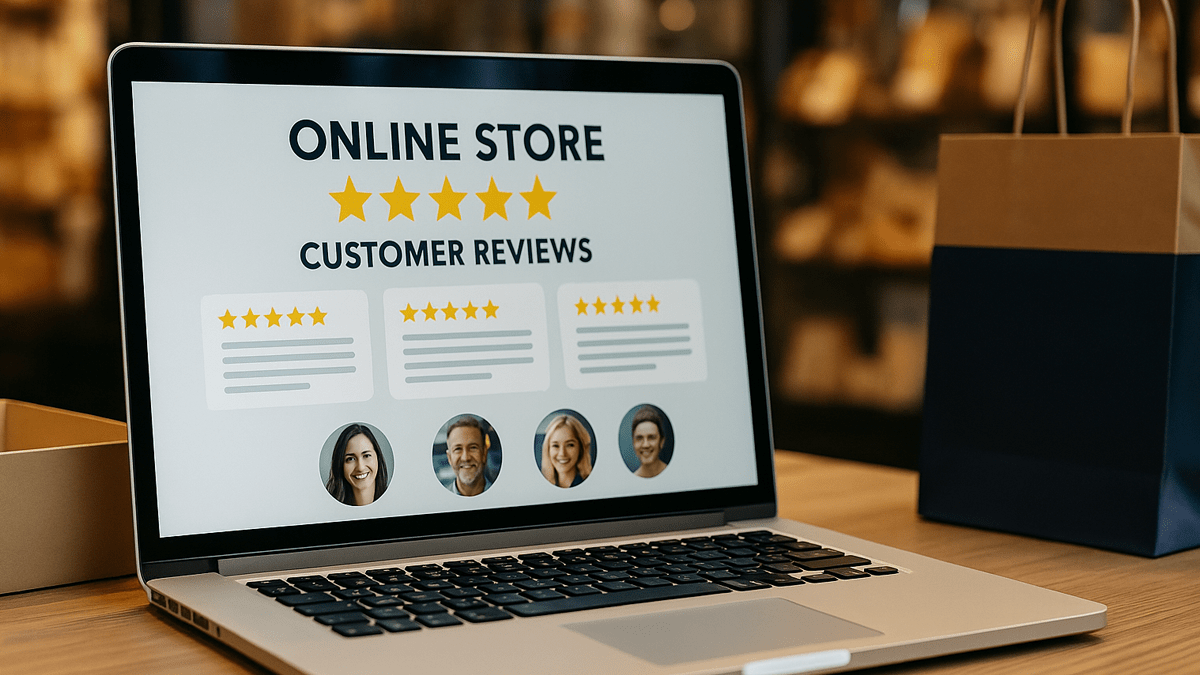In ecommerce, competition is intense and trust is fragile. Anyone can launch an online store, but convincing a total stranger to spend money with you is another matter entirely. That’s where social proof becomes essential. It isn’t just a marketing trick. It’s how humans make decisions, especially when risk is involved.
People want reassurance before they buy. They don’t just read product descriptions. They look for signs that others have gone first and had a good experience. If your site has no reviews, no testimonials, and no customer photos, it feels risky. But if just one customer says, “Shipped fast and better than expected,” that single line carries more weight than your best sales pitch. That’s the power of social proof.
Social Proof Creates Confidence
Social proof is what flips indecision into action. According to a recent BrightLocal study, 79 percent of consumers trust online reviews as much as personal recommendations. That’s huge. It means that strangers don’t need to know you to believe in your product. They just need to see that someone else already took the leap and was happy they did.
This matters even more for home-based ecommerce businesses. You don’t have a retail storefront or national branding. You have your products, your word, and the words of those who already bought from you. Those shared experiences, when visible as social proof, shift perception. They help your business look credible, even when it’s run out of a spare bedroom.
It Doesn’t Have to Be Flashy
You don’t need hundreds of reviews or slick influencer campaigns. A single photo of a customer unboxing their order can say more than a landing page full of bullet points. A short quote like “My dog won’t sleep anywhere else now” feels real. It connects because it’s social proof in action.
The best kind of social proof is casual, unforced, and scattered throughout your site. A review section on each product page. A photo or two on your homepage. A screenshot from social media where someone says, “Just got mine and I love it.” These feel authentic, and they work as credible social proof.
Nielsen’s 2025 research showed that 70 percent of shoppers are more confident buying when they see positive reviews. That confidence turns into conversions. And those conversions drive repeat customers. A report from Bazaarvoice in 2025 also found that 61 percent of buyers are more likely to return to a store that shows authentic customer feedback. Every one of those stats is about one thing: social proof.
Herd Behavior Is Real
Human beings are wired to follow others. This isn’t just psychology, it’s survival instinct. If a group is moving in one direction, your brain tells you to follow. Online, that translates into visible customer satisfaction. If a product has 50 positive reviews, a shopper is far more likely to trust it. If a site shows no social activity at all, they hesitate. That’s the social proof effect in real time.
That hesitation is a conversion killer. And the opposite, comfort from seeing others’ experiences, reduces it instantly. When your site gives visitors that quiet message of “others were happy here,” it’s doing its job. Social proof smooths that friction.
Keep It Real, Or Don’t Do It
There’s a difference between real social proof and performative nonsense. Today’s consumers are good at spotting fake reviews. If your site is covered in exaggerated claims and stock photos, it does more harm than good. People don’t want perfection. They want believable, relatable feedback from real users.
That means you need to use real names, honest quotes, and casual images. You don’t need to flood your site. Just make it easy to find a few genuine moments of feedback. When that feedback is displayed as visible social proof, it becomes one of the most honest and powerful forms of persuasion.
And yes, you should ask. Most satisfied customers won’t leave a review unless prompted. But if you send a simple email five days after delivery with a polite ask, many will respond. A 2025 Yotpo study found that 51 percent of buyers will leave a review if asked, compared to just 10 percent who do it on their own. That’s how you build fresh social proof without begging for it.
For Small Sellers, It’s a Must
You’re not a household name. You don’t have a Super Bowl ad. But you do have something powerful: the voice of people who already trust you. That’s more convincing than any hype. Social proof doesn’t just sell products, it builds trust. And that trust is what keeps customers coming back.
If you’re not collecting, displaying, and leveraging social proof right now, you’re working harder than you need to. A store without reviews looks risky. A store with even a few positive mentions looks safer. It’s that simple. Social proof helps tip the scales in your favor when your brand name alone can’t do it.
The Bottom Line
You can talk about your product all day, but what others say about it matters more. In ecommerce, where skepticism is high and attention spans are short, social proof is your shortcut to credibility. It reassures. It converts. And it keeps your business growing. If you want people to believe in your store, show them why others already do. That’s how trust is built, and how sales start happening for real. Never underestimate the power of social proof to turn a hesitant visitor into a confident buyer.

